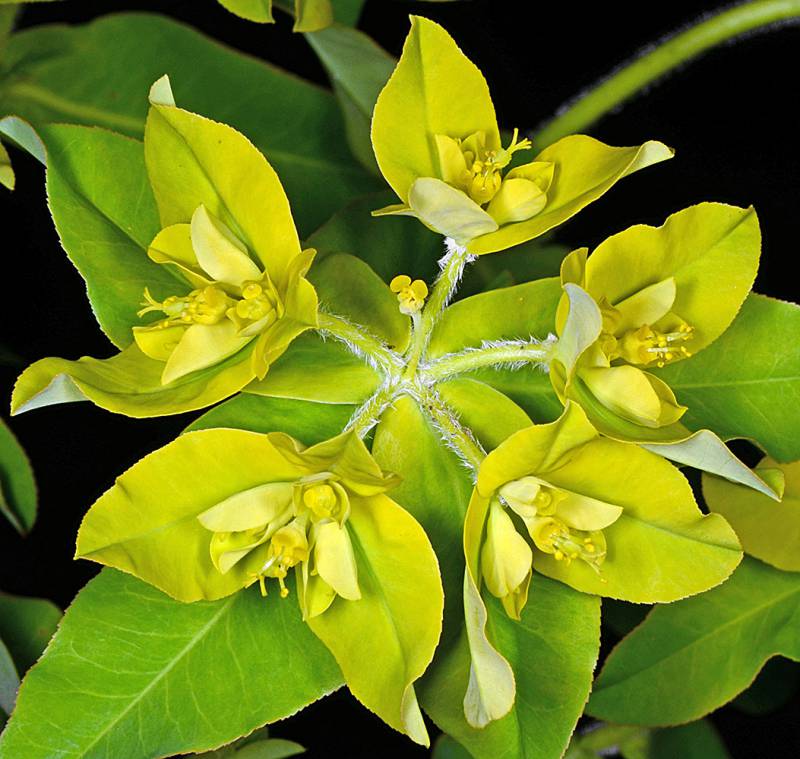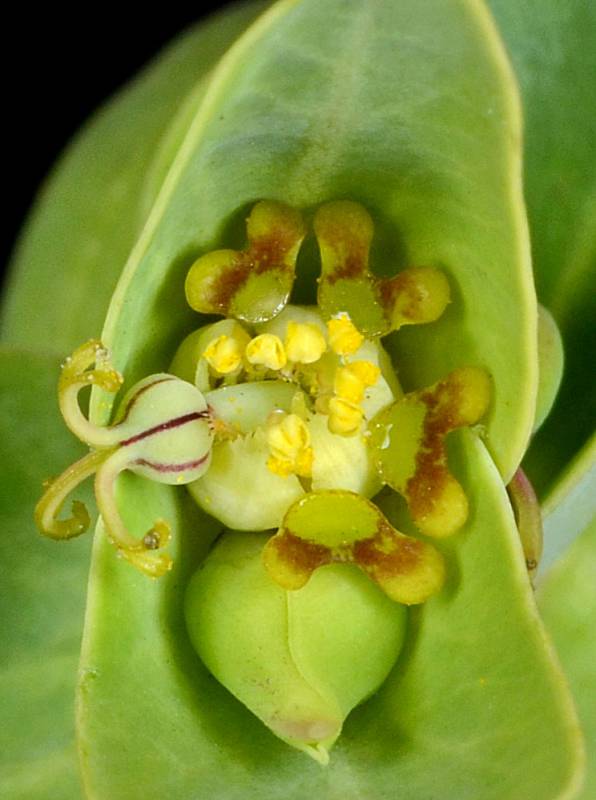Euphorbia oblongata
Euphorbia lathyris
balkan spurge, egg-leaf spurge
mole plant, gopher plant, caper spurge
Leaves opposite, numerous, narrowly oblong, 6-12 cm. long and sessile near the stem base;
leaves broadened upward on the stem, becoming ovate.
Flowers tiny, monoecious, borne in axillary involucres; staminate flowers numerous, naked, each consisting of a single stamen; pistillate flower single and terminal in the involucre;
involucre about 3 mm. long, purplish, bearing 4 glands with short, rounded horns.
Capsule globose, coarsely wrinkled, 5-10 mm. long, separating into three 1-seeded segments.
Euphorbia oblongata
Euphorbia lathyris
Occurring west of the Cascades crest in lowland western Washington; southwestern British Columbia to California.
Occurring chiefly west of the Cascades crest in Washington; British Columbia to California east to Idaho, Montana, Arizona, and Texas; widely distributed in eastern North America.
- Local floras:
BC,
CA,
OR,
WA
- Local Web sites:
CalFlora,
CalPhotos,
Flora NW,
PNW Herbaria
WildflowerSearch
iNaturalist (observations)
USDA Plants Database
- LBJ Wildflower Center
- SEINet
- Plants of the World Online
- Encyclopedia of Life
- Wikipedia
- Google Image Search
- Local floras:
BC,
CA,
OR,
WA
- Local Web sites:
CalFlora,
CalPhotos,
Flora NW,
PNW Herbaria
WildflowerSearch
iNaturalist (observations)
USDA Plants Database
- LBJ Wildflower Center
- SEINet
- Plants of the World Online
- Encyclopedia of Life
- Wikipedia
- Google Image Search



